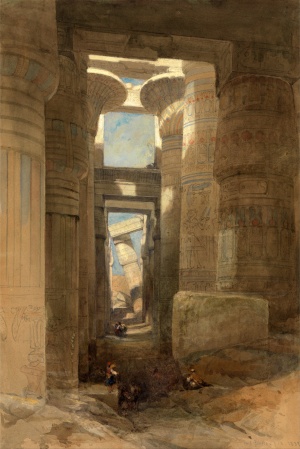Difference between revisions of "Omre"
Trismegistus (talk | contribs) m |
Trismegistus (talk | contribs) m |
||
| Line 17: | Line 17: | ||
=See Also= | =See Also= | ||
*[[Hmœssite Civilization]] | *[[Hmœssite Civilization]] | ||
| + | *[[Kingdom of Omre]] | ||
*[[Omrekheen Gods and Religion]] | *[[Omrekheen Gods and Religion]] | ||
{{stub}} | {{stub}} | ||
Revision as of 12:37, 2 July 2022
Omre [Anglicized Pronunciation: /ˈɔmˌrɛɪ/] is an ancient land in Disradún and well-known for its many temples and spiritual teachings. Its antediluvian predecessor was the Hmœssite Civilization, contemporary with that of the Aarokinian Titans. Omre is a semi-tropical plain resting between Sahimb and Ukelia. The Esdekhel River is the dominant feature of the land. The southern boundary of the land is bounded by the Djakhihut Mountains. Omre can be divided into three regions, Lower Omre where the mouth of the Esdekhel River dumps into the Titans Sea, Middle Omre where the city Eddanas Enkeki rests, and Upper Omre where the Esdekhel River originates.
Omre is Zumdash in the Khahonri Language.
The modern capital of Omre, Jemhu, rests on the mouth of the Esdekhel River. Other great cities include Penkardash and Eddanas Enkeki.
OMREKHEEN CHRONOLOGY
Ancient Name Khijira-Nakaat which became Hœrnect, an archaic name for Omre, in the Pallathantic Languages.
See Also
| This article is a stub. It requires further development by the creator. |

